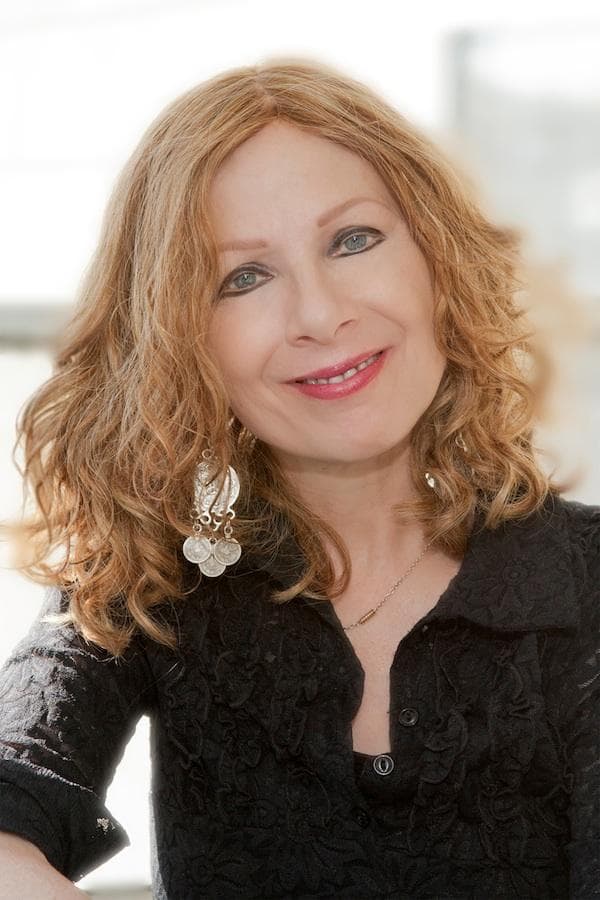Advertisement
Reviews
Tehila Lieberman Arrives. Go Ask Alice.

For decades now, Alice Munro has been the gold standard for short story writers, if not for all English-speaking writers. Jonathan Franzen said as much in his entertaining, insightful essay in the New York Times. Well, actually, he said North America, but I don’t know of any writers across the pond who are any better.
So when I say that some of the stories in Tehila Lieberman’s “Venus In The Afternoon” remind me of Munro’s latest collection, “Dear Life,” I’m talking about a seriously gifted writer. (She and another winner of the Katherine Anne Porter Prizewinner in Fiction, Peter Brown, will be reading from their collections at the Harvard Book Store at 7 p.m. Thursday, Nov. 8.)
(Read an excerpt from Lieberman's "Venus In The Afternoon" -- PDF, copyright University of North Texas Press, 2012.)
Not that Lieberman’s stories are much like Munro’s. Lieberman has moved from New York to Jerusalem to Cambridge and her work suggests an internationalist perspective. Munro has never strayed far from Lake Huron and Toronto and her work makes a universe of that territory. Where one always senses Munro’s presence in or at least near her characters, some of Lieberman’s best writing inhabits the bodies of people she has presumably little in common with — a South Boston working-class guy, a writer who watches his girlfriend drift into a new successful corporate identity. (“Olivia’s legs were getting longer, I thought, as she approached me. No, I realized, it was her skirts that were shorter.”)
In my favorite, “The Way I See It,” Lieberman’s narrator is a window cleaner, a widower who sees a businesswoman who reminds him of his estranged daughter. The double-loss is heartrending. He took his wife too much for granted, he couldn’t understand his daughter. And yet he’s a thoroughly sympathetic narrator, trying to do the right thing, trying to understand, as when he starts taking out the same library books that his wife used to read.
His predicament at one point could be the dictionary definition of Munro’s “Dear Life.” He observes, when he gets stuck while washing windows, “It’s funny how even when you think there’s nothin more anchorin you to this life, there it is, like a rumbling in your belly and you wantin more. Even with the woman gone and my nights a long stretch of beer and TV, there I was, wantin more.”

I thought that Munro’s title, “Dear Life,” would also reference the preciousness of life, but it turns out that it refers to a different spin on the phrase — her mother looked out the window of their house one day and saw a local crazy woman peering into Alice’s baby carriage. She ran out of the house and “grabbed me up, as she said, for dear life.”
(Read an excerpt from Munro's "Dear Life.")
Life is precious, but it’s even more dangerous. That Munro is writing so clearly about herself rather than a fictional character is part of the conceit of “Finale,” the last four entries in the book, of which she says, “They form a separate unit, one that is autobiographical in feeling, though not, sometimes, entirely so in fact. I believe they are the first and last — and the closest things I have to say about my own life.”
Actually, they don’t seem all that much closer to her than her fiction. We have met the mother with Parkinson’s before, the father who doesn’t quite understand her city ways, the broken marriage, the daughters she feels guilty about. They’re in the fiction as well, most of them in this collection in various guises.
For all that, there’s never a sameness. The characters are not only always believable, but their actions inevitable. There’s the woman who’s about to leave one life behind and enter another and “just stood there waiting for whatever had to come next.” Most of Munro’s characters either seize the day or live out a life in second gear, devoid of love or intimacy. There’s a price to pay for either tack, though Munro, herself, is nonjudgmental.
If you think that inevitability is a virtue in art — not everyone does — then some of Lieberman’s stories fall short, particularly those that deal with strong women letting a husband or mother treat them contemptuously. It might serve the plot, but not the believability.
She can also get a little too purple — “Venus’s eyes were closed, her mouth opened slightly, as if in the first adagio of sex.” And in “Fault Lines,” about a woman who had been put up for adoption when she was young, you might find yourself saying “Don’t go there, Tehila, don’t go there” only to find that in the end she does go there.
For the most part, though, Lieberman’s stories and characters are intriguing. There’s the rabbi who walks out of his way to get to his office at Columbia so he won’t have to mingle with the teeming humanity on Broadway in “Anya’s Angel,” which smartly pits rationality against mysticism, among other themes.
Her characters are generally more engaged in life than Munro’s, who are often desperate to make connection or desperate to avoid it. But through it all, there’s a mystery in Munro to why people do what they do. Or don’t do.
And never even the lightest shade of purple: “Some said Ileane had not actually smoked …while others said she certainly had. Smoked. Their minister’s daughter. Smoked.” She makes matter-of-factness somehow profound. Whether Ileane smoked or not, Alice always smokes.
Tehila Lieberman will be reading from her new collection, "Venus In The Afternoon," at the Harvard Book Store in Cambridge on Thursday, November 8 at 7 p.m.
This program aired on November 7, 2012. The audio for this program is not available.
